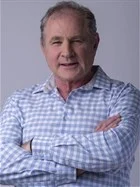
Top stories





Energy & MiningGlencore's Astron Energy gears up with new tanker amidst Sars dispute
Wendell Roelf 17 hours

More news





















Logistics & Transport
Uganda plans new rail link to Tanzania for mineral export boost





Or simply, service is the difference between what people expect and what they experience.
But what do people expect?
People expect only two things. The first thing is: for you to realise that they are there.
We cannot design all things to serve all people at one time - and most of us understand that - so we queue. Contrary to popular belief the human body can easily do nothing for extended periods - as we do on holiday or lazy Sundays. So here's what's important: people don't mind waiting - they hate to be kept waiting. I did not mind waiting a week for my connecting flight in the outback - but I was most put out when it was an hour late. The reason for this anomaly is that, if I wait for a known outcome, then I have a chance to set my expectations, but if the experience is out of kilter with the expectation then I have a negative value on my service equation. So, in this case, being a week late had less impact on my perceived level of service - than the one hour.
The second thing people expect is that they made the right choice in coming to you. Every moment in retail is an important moment of truth (MOT) - if you're taking money from a customer, at the point where you, the money and the customer are in contact - give that person 100% of your attention. It takes less than a second, but reinforces what that customer wants: for them to feel that they made the right choice to come to you to satisfy their needs. Airline pilots often end the flight with telling you that they understand you have a choice in airlines and are grateful for having flown the airline. The idea is not to thank them after the fact - it's too late - the entire process needs to affirm their choice.
For service to work, it needs two, and only two elements.
The first element is: a system. If you are a fast food chain, then all your tills are open during mealtime. If you are a family restaurant, and then you cater for active kids, keep a supply of high chairs and employ waiters who understand children.
If you supply a given level of service, there must be a system to back it up - there is no point having the best intentions if you are not going to build an operation that provides you with the result you want. If you want your staff to smile, then there has to be an entire system - the front end of which is the smile. Behind every successful man, the saying goes, is a successful woman. Well, behind every successful moment of truth lies a successful system.
So, the first element that service needs is a system. The second thing it needs is people, but people with the requisite knowledge and skills to leverage the system. Why do we 'have to speak to the manager'? Why should the manager have the knowledge and skills - he is probably no more gifted to handle the situation than the staff on the frontline. It's usually a symptom of a poorly constructed or communicated system with unsuited or untrained staff. Here's the acid test: When something goes awry in your business, and you cannot leverage it as an opportunity, then you do not have the elements required for optimal service provision.
If there are any laws of service, I think the first would be that service is a choice. However, it is not a choice of attitude or sentiment, but rather a choice of outcome. You either empower your floor manager to have the discretion to open more tills when necessary by giving him or her the resources (additional staff that can operate tills) and the power to make the decision. Or you don't.
You either train and motivate your telesales staff. Or you don't. You should be able to isolate all the moments that could be collectively called the service experience and then decide on your level. Service, like most things in life, is a choice.
Once you have the first law under control, you can then profit from the second law of service, and that is: service pays. If you know what your customer values, then you should be able to optimise the experience for a competitive advantage. There's no point being the best or the fastest or the mostest - these all cost and may not be the deciding factors that you think they are.
Service probably pays in many ways - just as we develop a fondness and a loyalty for any experience that we enjoy. We often frequent the same place for a holiday every year, even though the reason we are going is to have a change. In a world of great uncertainty and turbulence, having our expectations met on a regular basis, probably has a lot more influence on brand choice than we realise.
SUMMARY
The Service Equation: Service = Experience - Expect
People expect only two things
1. That you know they are there
2. That they made the right choice by coming to you to satisfy the need
The two elements required for service
1. A system
2. People with knowledge (of the system) and skills
The two laws of service
1. Service is a choice
2. Service pays
Copyright notice: The Service Equation, the two things people expect, the two elements and the two laws of service are copyright Sid Peimer 2001.
